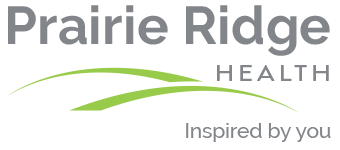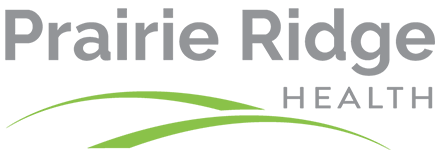Maintaining a network of support for new moms
 The women’s and childbirth services team at Prairie Ridge Health provides a network of support for new mothers, which includes breastfeeding education, assistance, and as of 2020, access to donor milk through the Mothers’ Milk Bank of the Western Great Lakes.
The women’s and childbirth services team at Prairie Ridge Health provides a network of support for new mothers, which includes breastfeeding education, assistance, and as of 2020, access to donor milk through the Mothers’ Milk Bank of the Western Great Lakes.
“As healthcare providers, it is important for us to support women prenatally, postnatally, and through their lactation experience,” said Joan young, RN, FNP, IBCLC, lactation consultant at Prairie Ridge Health.
When a mother’s own milk is not available, there are two options: pasteurized donor human milk or commercial formula. The Mothers’ Milk Bank of the Western Great Lakes is a non-profit human milk bank that serves the Western Great Lakes region, including Wisconsin and Illinois. Milk Bank WGL coordinates the acceptance and distribution of the donor milk, which is heat treated (pasteurized) to destroy bacteria and viruses.
From cancer prevention to the reduction of allergies to relaxation benefits, Young says the benefits of breastfeeding are endless. “Breast milk is a living liquid,” explains Young “It is species specific. The components in the breast milk positively affect the baby’s growth, development and immune system.”
In order to offer the donor milk program, the PRH Foundation donated $3,850 to purchase a commercial refrigerator freezer unit to store the breast milk. Since the start of the program in February of 2020, PRH has assisted 86 families and have used more than 14,900 ounces of donated milk as part of the program.
According to the Wisconsin Hospital Association Check Point, Prairie Ridge Health
is sixth in the state of Wisconsin (out of over 80 hospitals) for exclusive breast milk
feeding for newborns, with over 80% of babies born at PRH being exclusively fed
breast milk during the entire hospitalization.
The PRH Women’s and Childbirth Services team is trained on proper supplementation, safe storage, handling and preparation of the donor milk.
Milk Bank WGL is accredited by the Human Milk Banking Association of North America (HMBANA) and regulated by the Food and Drug Administration, Illinois Department of Public Health, and Elk Grove Village Health Department. The Milk Bank WGL Food Safety Plan identifies potential biological, chemical, and physical hazards in each processing step. Certified Preventive Controls Qualified Individuals (PCQIs) identify the preventive controls, verifications, and validations to prevent the risk of hazard.
For more information regarding how to become a milk donor or a financial donor, visit www.milkbankwgl.org

